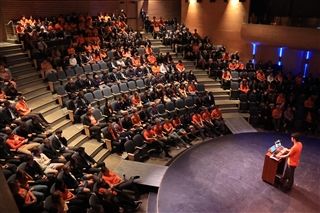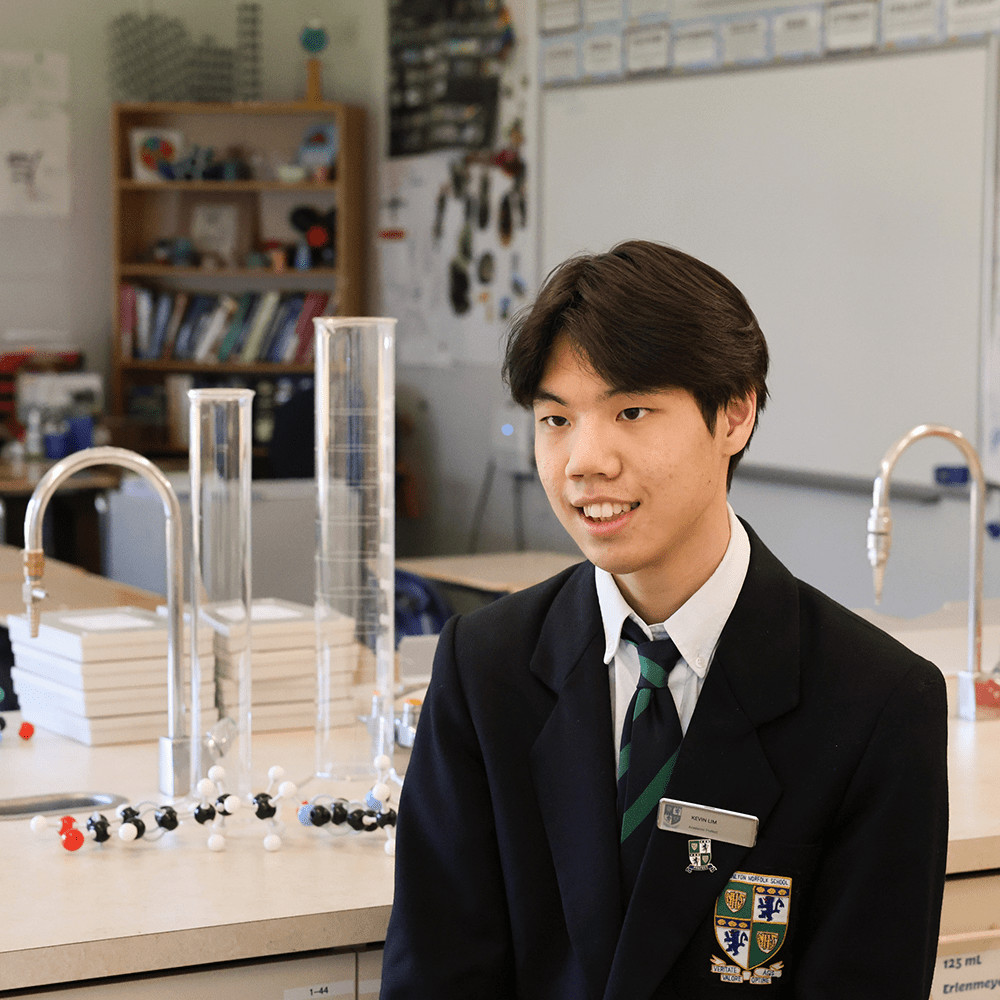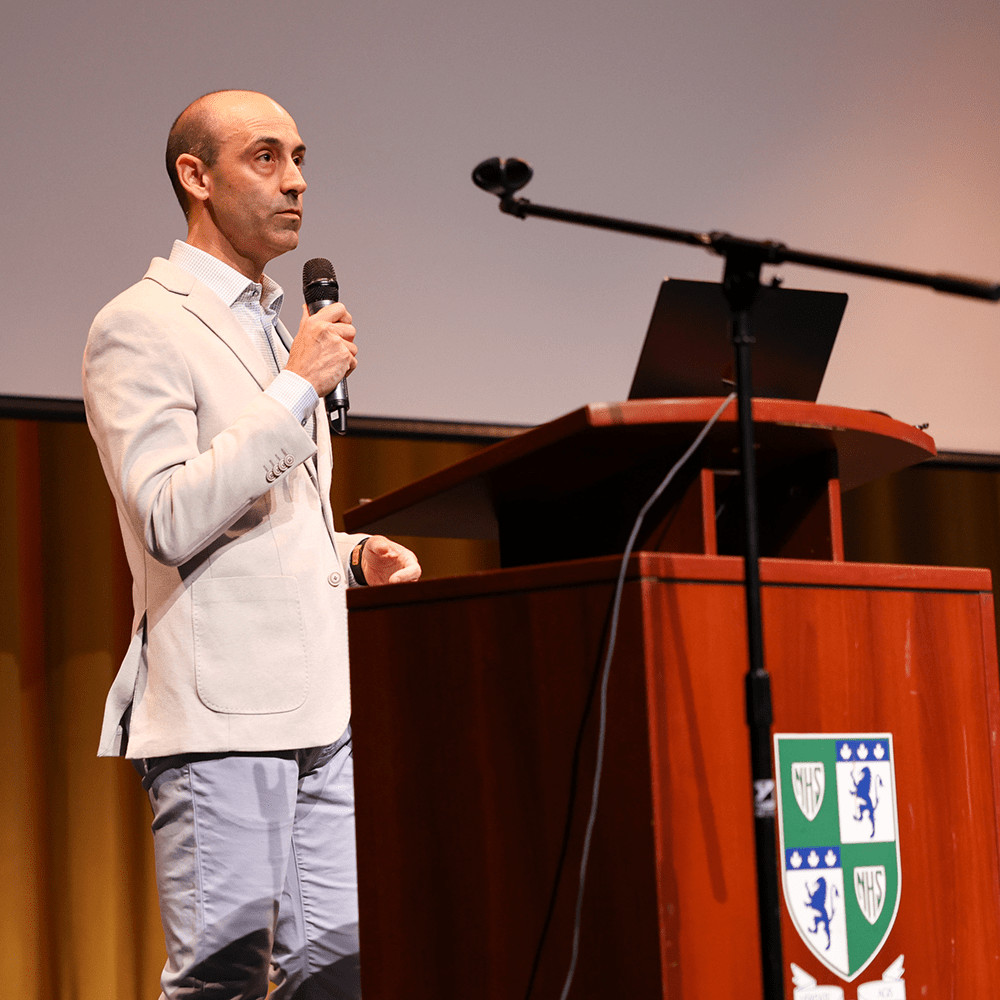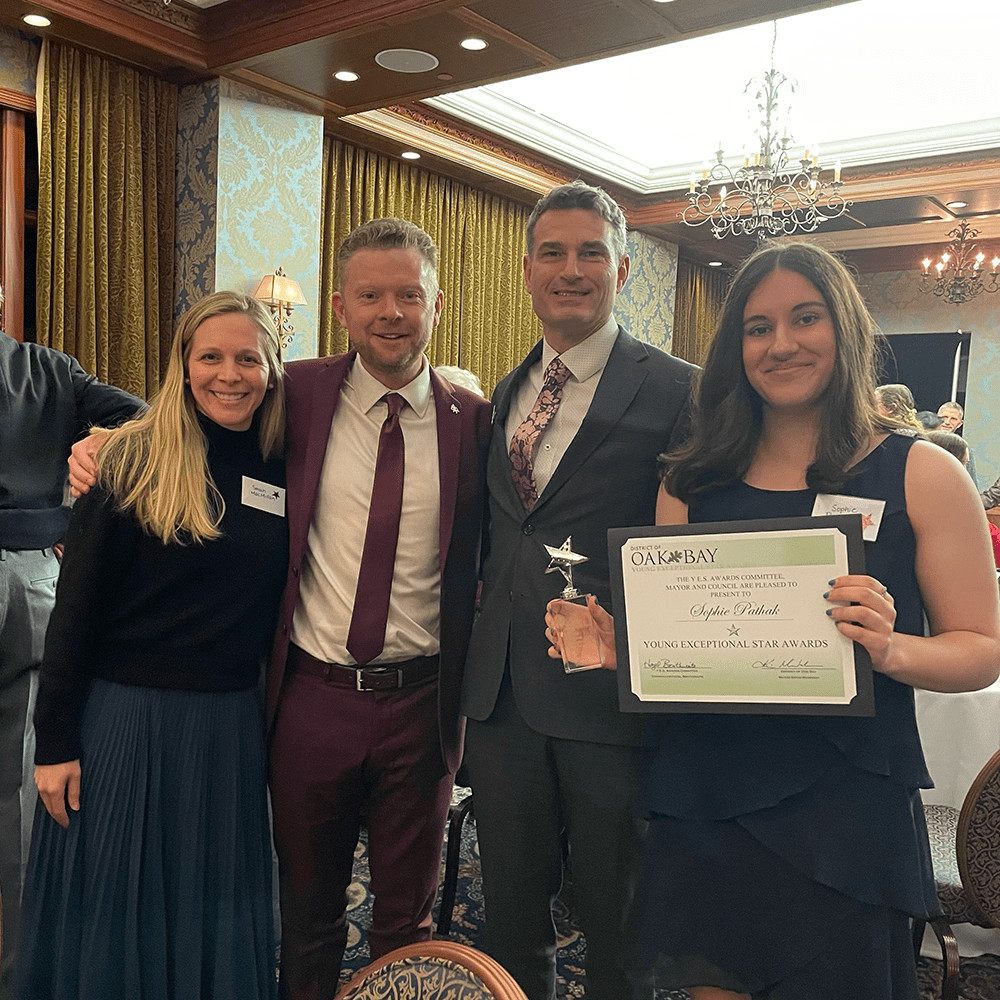1. What motivated you to lead this assembly?
I felt like it was my responsibility as the Advocacy Prefect to do it. As Advocacy Prefect, it’s my job to try and educate the student body about important social issues like reconciliation.
2. What was your biggest takeaway?
My biggest takeaway was that Indigenous history, particularly reconciliation, is an incredibly deep topic. Even though the assembly was more than 40 minutes, there was still a lot of detail about the history of colonization, the reservation system, and ways to get involved locally that I didn’t get to mention. Another takeaway I had was that colonization and reconciliation are hard topics to talk about, especially when you aren’t Indigenous. I was only able to talk from an academic perspective, talking about the facts of what happened. I relied on videos with Indigenous speakers to talk more about the impacts of colonization because I don’t have a personal connection to reconciliation, which is important when educating about the topic. It’s why having Indigenous resources and education is important.
3. What do you hope the school took away from the assembly?
I obviously hope that the school took away a lot of information about the history and culture of Indigenous people, and about colonization and reconciliation. However, I was only able to provide a generally brief overview, so what I hope the school took away from my assembly is that we should all be striving to further educate ourselves. Learning about the history and issues surrounding colonization helps us understand why reconciliation is important and what we can do. Learning about Indigenous history and cultures also helps us combat stereotypes and generalizations of Indigenous people, which have historically been harmful and limit our ability to take action.
4. Regarding the information that you have learned, what had the biggest impact on you?
One thing that researching for this presentation really struck home for me was the extent to which Indigenous groups had their cultures and identities impacted by colonization. While we all know the history of residential schools, many people might not be aware of just how many languages are critically endangered, how many cultures were simply wiped off the map, and how many traditions were lost.
5. What action do you hope the school, and community, will take?
One thing that’s important is that the school continues to work on incorporating Indigenous education at our school. It would be good for the student body to learn more about Indigenous cultures and Indigenous histories. We could do that by inviting Indigenous speakers or covering these topics in I&S classes. More education about reconciliation and the impacts of colonization from an Indigenous perspective is also something the school should look into more. I also hope that the student body and GNS community will work to educate themselves more.
As emphasized by Solomon, taking the time to learn and expose ourselves to Indigenous education to combat generalizations and stereotypes as well as to reflect on the harm and trauma of residential schools and colonization that continues to impact future generations is one way we can help to move forward with Truth and Reconciliation efforts. Educating ourselves should not be reserved just for September 30. Instead, we can take some time each day to reflect so we may make long-lasting and impactful changes.
Thank you Solomon for taking the time to present at our assembly and for providing us with further in-depth information with this interview.





